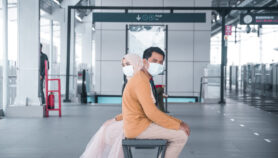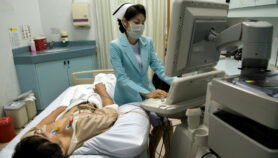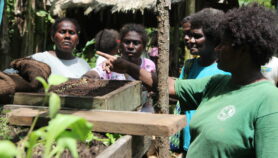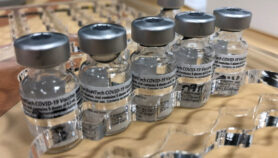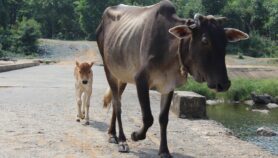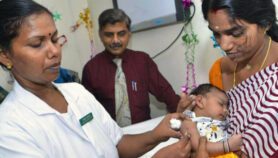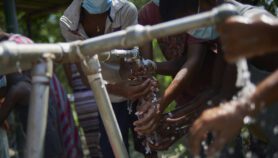19/01/21
‘Catastrophic moral failure’ risk over COVID-19 shots – WHO
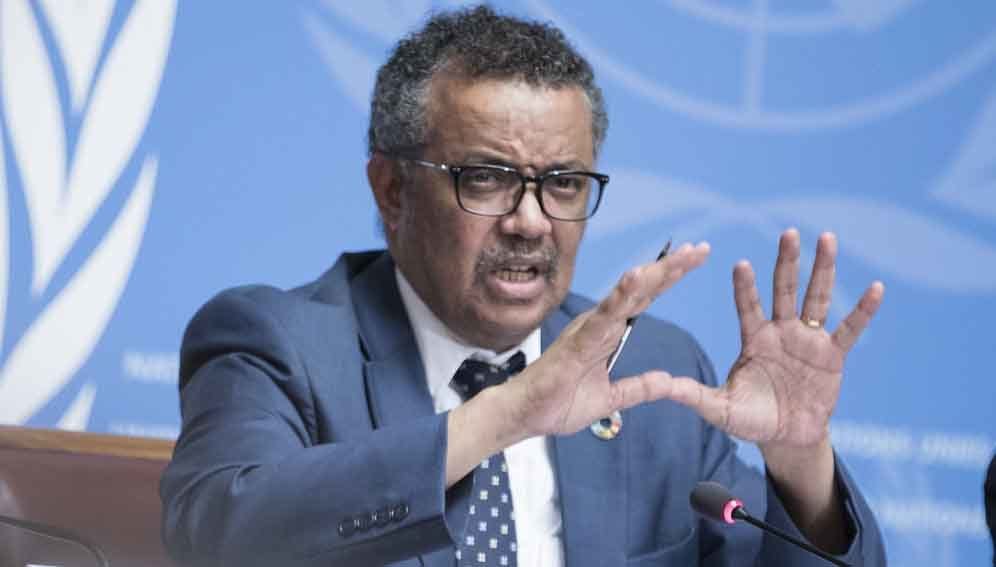
By: Ruth Douglas
Send to a friend
The details you provide on this page will not be used to send unsolicited email, and will not be sold to a 3rd party. See privacy policy.
As few as 25 doses of the COVID-19 vaccine have been administered in one of the world’s poorest countries, the head of the World Health Organization (WHO) has said, warning of a “catastrophic moral failure”.
In some of his bleakest comments yet about the pandemic response, director-general Tedros Adhanom Ghebreyesus cast doubt over whether the WHO-backed COVAX facility, created to ensure equal access to COVID-19 vaccines, would get the doses it needs as high-income countries forge their own deals with vaccine makers.
The warning comes as cases of the virus continue to rise around the world, with 94 million confirmed cases and 2.03 million deaths recorded globally, according to the WHO.
Speaking at the start of the organisation’s week-long executive board meeting on Monday, Tedros said: “As the first vaccines begin to be deployed, the promise of equitable access is at serious risk.
“The world is on the brink of a catastrophic moral failure – and the price of this failure will be paid with lives and livelihoods in the world’s poorest countries.”
WHO director-general Tedros Adhanom Ghebreyesus
“More than 39 million doses of vaccine have now been administered in at least 49 higher-income countries. Just 25 doses have been given in one lowest-income country. Not 25 million; not 25 thousand; just 25.”
The WHO chief did not state which country the 25 referred to, but a WHO spokeswoman later identified it as Guinea, West Africa.
“I need to be blunt: the world is on the brink of a catastrophic moral failure – and the price of this failure will be paid with lives and livelihoods in the world’s poorest countries,” Tedros said.
He hailed the development and approval of safe, effective vaccines less than a year after the novel virus emerged as “a stunning scientific achievement”, but warned they risked becoming “another brick in the wall of inequality between the world’s haves and have-nots”.
The Ethiopian said the recent emergence of rapidly spreading variants of COVID-19, such as new strains identified in Brazil and South Africa, has made the equitable rollout of vaccination programmes all the more critical.
“There will be enough vaccine for everyone,” Tedros told board members convened virtually from the WHO’s headquarters in Geneva, Switzerland.
However, countries must work together to prioritise those most at risk, he said, adding that it was “not right” that younger, healthier adults in rich countries are vaccinated ahead of older people and health workers in poorer countries.
A spokesman for the vaccine alliance, Gavi, told SciDev.Net the COVAX facility was “on track” to secure 2 billion doses of vaccines in 2021. “While the majority of these doses will be delivered in the second half of the year, we anticipate being able to provide each participating economy with the first tranche – enough to protect approximately 3 per cent of the population – in the first half of 2021,” she said.
“This process could begin as early as February pending favourable regulatory outcomes and the readiness of health systems and national regulatory systems in individual participating economies.”
However, Tedros criticised rich countries and pharmaceutical companies for prioritising bilateral deals over assisting COVAX, with 44 bilateral deals signed last year and at least 12 so far this year. Most manufacturers have prioritised regulatory approval in rich countries where the profits are highest, rather than submitting regulatory data to the WHO, Tedros said.
“This could delay COVAX deliveries and create exactly the scenario COVAX was designed to avoid, with hoarding, a chaotic market, an uncoordinated response, and continued social and economic disruption,” he added.
Since January 1, the world has been recording an average of almost 12,500 daily deaths and 682,000 recorded cases, according to a report published Tuesday by the Independent Panel for Pandemic Preparedness and Response.
The report expressed “deep concern” over the continued rises in cases and deaths and the prospect of inequitable rollout around the globe.
Co-Chair Ellen Johnson Sirleaf, former Liberian president, said the panel was grateful to scientists for developing vaccines in record time. “We regret, however, that the vaccine roll-out is currently favouring wealthy countries,” she said.
“A world where high-income countries receive universal coverage while low-income countries are expected to accept only 20 per cent in the foreseeable future is on the wrong footing – both for justice and for pandemic control. This failure must be remedied.”
According to ourworldindata.org, an initiative by the University of Oxford and partners which is collating data on the pandemic, the United Arab Emirates is currently delivering the highest number of vaccines per 100 people at 1.16 doses. It is followed by Israel (1.11), Bahrain (0.42), the UK (0.39) and the US (0.24). Brazil is administering the fewest of those countries with available data, at 0.01 per 100 people. No data was available for any low-income countries.
Jeremy Farrar, director of UK-based medical research charity Wellcome, said the wake-up call from Tedros was “spot on”. Responding on Twitter, he warned that unless the pandemic was ended everywhere, new variants would emerge which could evade vaccines.




